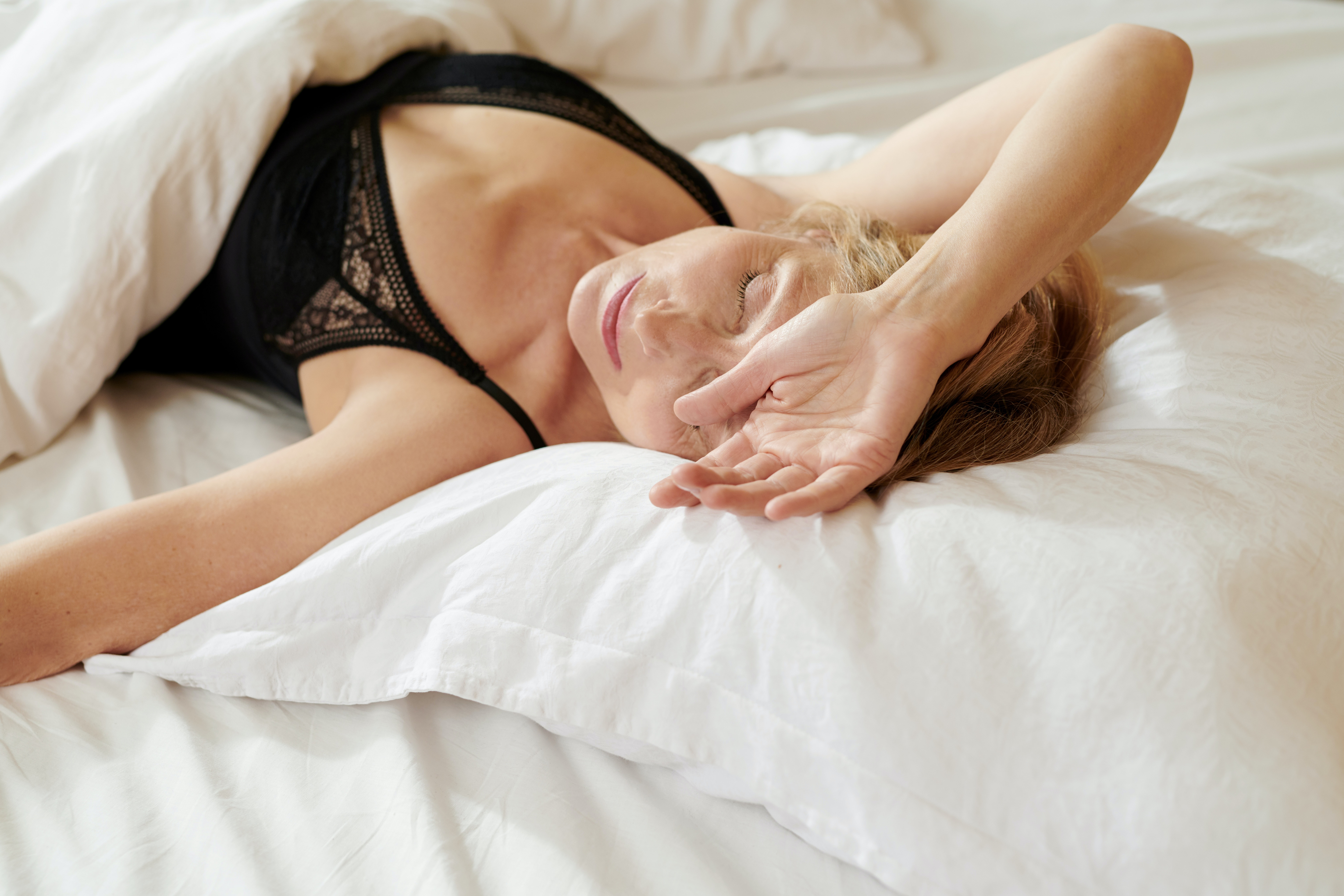
Sleep Your Way to Better Skin
As we head into the darkest winter months, nature dictates we settle down for a long winter’s nap… Or at least a good night’s sleep every night! That is, she used to, until the invention of electricity, the Internet, and the advent of the 24-hour-workday.
Increased demands on our time coupled with an epidemic of insomnia means as a culture, we just don’t get enough sleep. And our board-certified dermatologists at Genesis Dermatology in Jupiter want to caution you. In addition to other negative effects on your health, lack of sleep also shows up on your skin.
Effects of inadequate sleep
The National Sleep Foundation recommends adults sleep at least seven to nine hours every night. The CDC reports, however, between 50 million and 70 million Americans have trouble getting the recommended amount.
This can lead to numerous health issues, including an increased risk for cardiovascular disease (CVD), cancer, depression, and anxiety.
When it comes to your skin, your body’s largest organ, inadequate sleep impacts everything from chronic conditions like acne, rosacea, rashes, psoriasis, and eczema, to the appearance of fine lines and wrinkles. In addition, sleep deprivation can also significantly raise cortisol levels. This can negatively impact your immune system’s ability to fight off disease.
According to Sleep.org, when you sleep, your body releases growth hormones. They help with cell and tissue repair and restoring your skin. A good night’s sleep also ensures the production of cytokines, which are molecules that help the immune system fight infections.
The effect on appearance
Aside from all these detrimental health impacts, there’s also the effect lack of sleep can have on your appearance. You know this yourself when you face the mirror on mornings when you’ve skimped on sleep. The sags, discoloration, and enhanced wrinkles aren’t your imagination. And others can see it, too.
In a clinical trial commissioned by the cosmetics firm Estée Lauder, researchers found that poor sleepers had increased signs of skin aging as measured by objective observers, as well as assessments by the study subjects themselves.
The study examined the effects of self-reported sleep deprivation on 60 pre-menopausal women between the ages of 30 and 49. Half the participants were rated as poor-quality sleepers, based on their average duration of sleep and the Pittsburgh Sleep Quality Index, a standard assessment of sleep quality.
The study involved not only visual inspection of the participants’ skin, but a number of non-invasive tests, including UV light exposure and skin barrier disruption. The researchers found that those who didn’t sleep well showed significantly more signs of skin aging, such as fine lines, uneven pigmentation, and less skin elasticity. They also found that those who slept well were quicker to recover from such environmental stressors as pollution and sun (UV light) exposure.
“Our study is the first to conclusively demonstrate that inadequate sleep is correlated with reduced skin health and accelerates skin aging,” lead researcher Dr. Elma Baron reported at the International Investigative Dermatology Meeting in Edinburgh, Scotland. Baron is the director of the Skin Study Center at University Hospitals (UH) Case Medical Center and associate professor of dermatology at Case Western Reserve University School of Medicine.
“Sleep deprived women show signs of premature skin aging and a decrease in their skin’s ability to recover after sun exposure,” she said.
What to do
For the health of your skin, not to mention the rest of your body, it’s important to prioritize sleep.
Here are a few tips to help you get a better night’s sleep.
1. Cut back or eliminate such stimulants as nicotine and caffeine. Caffeine can affect sleep as late as 12 hours after your last cup of coffee.
2. Restrict activities in bed to sleep and sex. Don’t train your body or brain to think of the bed as either a work or entertainment platform.
3. Nap only when absolutely necessary. Afternoon naps can interfere with nighttime sleep. Also, set regular bedtimes and waking times, even on holidays and weekends.
4. Do not eat or drink (including alcohol) within three hours of bedtime. Digesting food can interrupt the quality of your sleep. Liquids will force you to awaken during the night for bathroom trips. Alcohol can have a rebound effect, making you sleepy at first, and then waking you in the middle of the night when that effect wears off.
5. If worries keep you awake, keep a pad and pencil by your bedside to jot them down for consideration in the morning.
6. Turn off all electronic devices one hour before bed. The blue light on such devices as cellphones, computers and televisions can disrupt your sleep rhythms.

